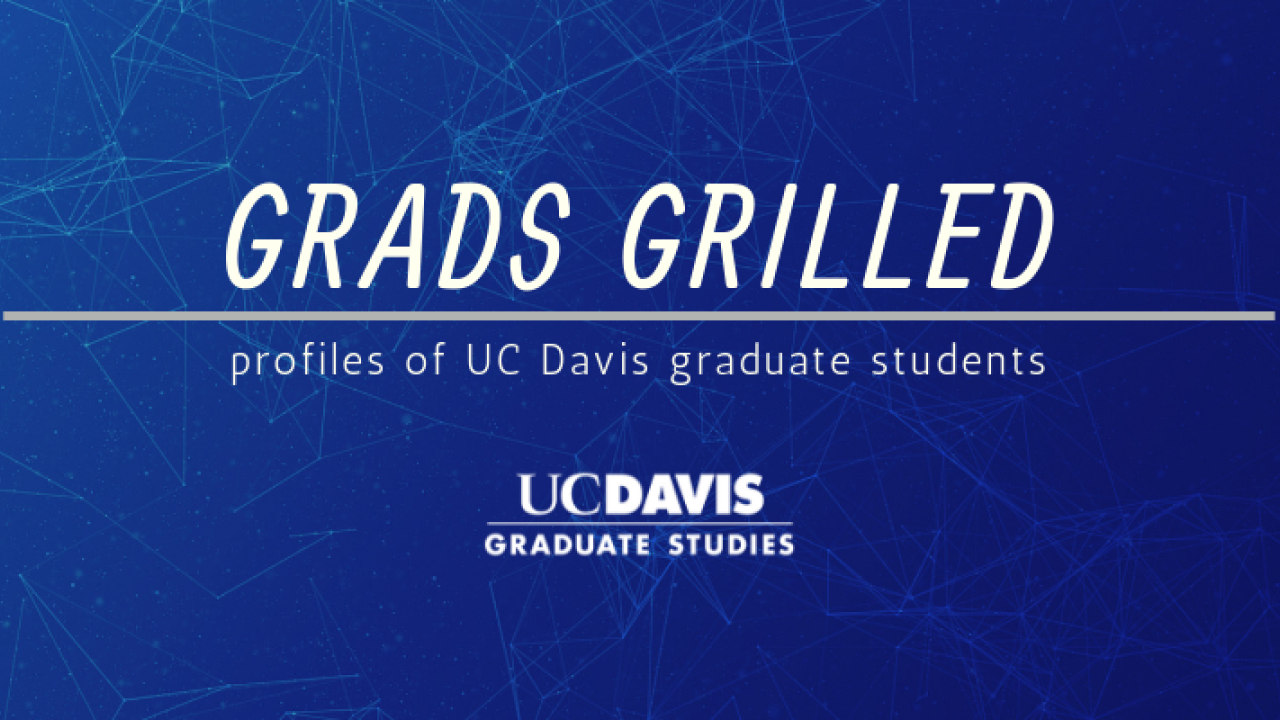
Graduate Student Profile: Ori Tamir, Sociology
Meet UC Davis Graduate Student Ori Tamir
- Department

Sociology - Program and year of study
Ph.D.
- Previous degrees and colleges
I completed undergraduate degrees in philosophy, psychology and sociology and the University of Pittsburgh.
- Where did you grow up?
I grew up in a few different places. I was born not far from here, in Palo Alto, but moved to London when I was quite young. I spent the first half of my childhood in England before moving to Seattle for five years, then New Jersey for the last years of high school. It’s been a privilege and a challenge to live in so many different places, and I’m happy to have come full-circle and be back in Northern California.
- Where do you live now?
Davis
- What's your favorite spot in Davis?
I recently discovered the main reading room in Shields Library, which is a reliable place to get work done when it is not too crowded. Otherwise, the table closest to the far window at Chipotle is where I go to unwind, eat good food, and listen to podcasts in peace.
- How do you relax?
I grew up playing soccer, and I was happy to find a way to continue playing on a competitive team while pursuing my studies. Otherwise, I maintain a steady media diet of television, podcasts and videogames during my downtime. Making space for leisure has been instrumental in staving off burnout.
- What was the last book you read for pleasure?
I have to go pretty far back for this one, I think it was The Kingkiller Chronicles by Patrick Rothfuss during my senior year of college. But honestly, who has time to read for pleasure anymore?
- What TV show are you currently binge-watching?
A delightful combination of Bojack Horseman and Master of None
- Research interests
I study the construction of global human rights since the inception of the modern international system after WWII, specifically how it factors into foreign policy. Nation-states possess the power and authority to carry-out devastating violence, and I’m interested in the ethical limits on that power, of which the rights of individual citizens are one. I’m trying to understand how policymakers, foreign policy experts, NGOs, and international courts have approached questions and issues related to human rights, regarding their involvement in foreign policy more generally.
- Dissertation title or topic
Human Rights and the Foreign Policies of the United States, the United Kingdom and Israel (tentatively)
- Please share a surprising or noteworthy fact or finding from your research
One might assume that the military is run based on strategic considerations. This is true to an extent, but other institutional factors which are often neglected are also at play. Barry Posen has shown that the offensive doctrine of the French military is based on whether it serves the careers of top officers, not on strategic concerns. This is unsurprising considering that individuals run organizations, and have their own personal interests that might motivate their decisions. But it nevertheless goes against the popular understanding of the military as an apolitical institution, dedicated solely to national security.
- Which professor or class inspired you to pursue graduate studies?
A class in Marxist philosophy my freshman year of college provided me with a lens to understand the social world. Though I’ve moved away from Marx, reading his work taught me that the world can be understood through theory.
- Which scholarly text do you wish you had written? Why?
David Forsythe’s Human Rights in Foreign Policy, despite its dry title, is an incisive yet accessible academic work. He takes a head-first dive into the morality of foreign policy, balancing its ethical and practical dimensions, and emerges with compelling conclusions. His ability to take a heavy and dense topic, and engage it with clarity and even humor is remarkable.
- What's the best thing about being a grad student?
The institutional support, especially with the substantial autonomy afforded to me at UC Davis. I feel lucky to be able to make learning, teaching, and pursuing research my occupation
- What's the worst?
The stress, though that seems like an inescapable feature of modern life
- Finally, please ask yourself a question - "What is a good habit to develop or maintain while in grad school?"
Getting the work-life balance right is key. For me, this means structuring my day in such a way that I can make progress on my work, yet set aside enough time for leisure. Time-management has never been my strength, but developing that skill over the last year has helped me feel better about my 24 hours.
Graduate student profile courtesy of the UC Davis College of Letters and Science.
About Graduate Studies
Graduate Studies at UC Davis includes over 100 dynamic degree programs and a diverse and interactive student body from around the world. Known for our state-of-the-art research facilities, productive laboratories and progressive spirit – UC Davis offers collaborative and interdisciplinary curricula through graduate groups and designated emphasis options, bringing students and faculty of different academic disciplines together to address real-world challenges.
UC Davis graduate students and postdoctoral scholars become leaders in their fields: researchers, teachers, politicians, mentors and entrepreneurs. They go on to guide, define and impact change within our global community.
For information on Graduate Studies’ current strategic initiatives, visit the Graduate Studies strategic plan page.
